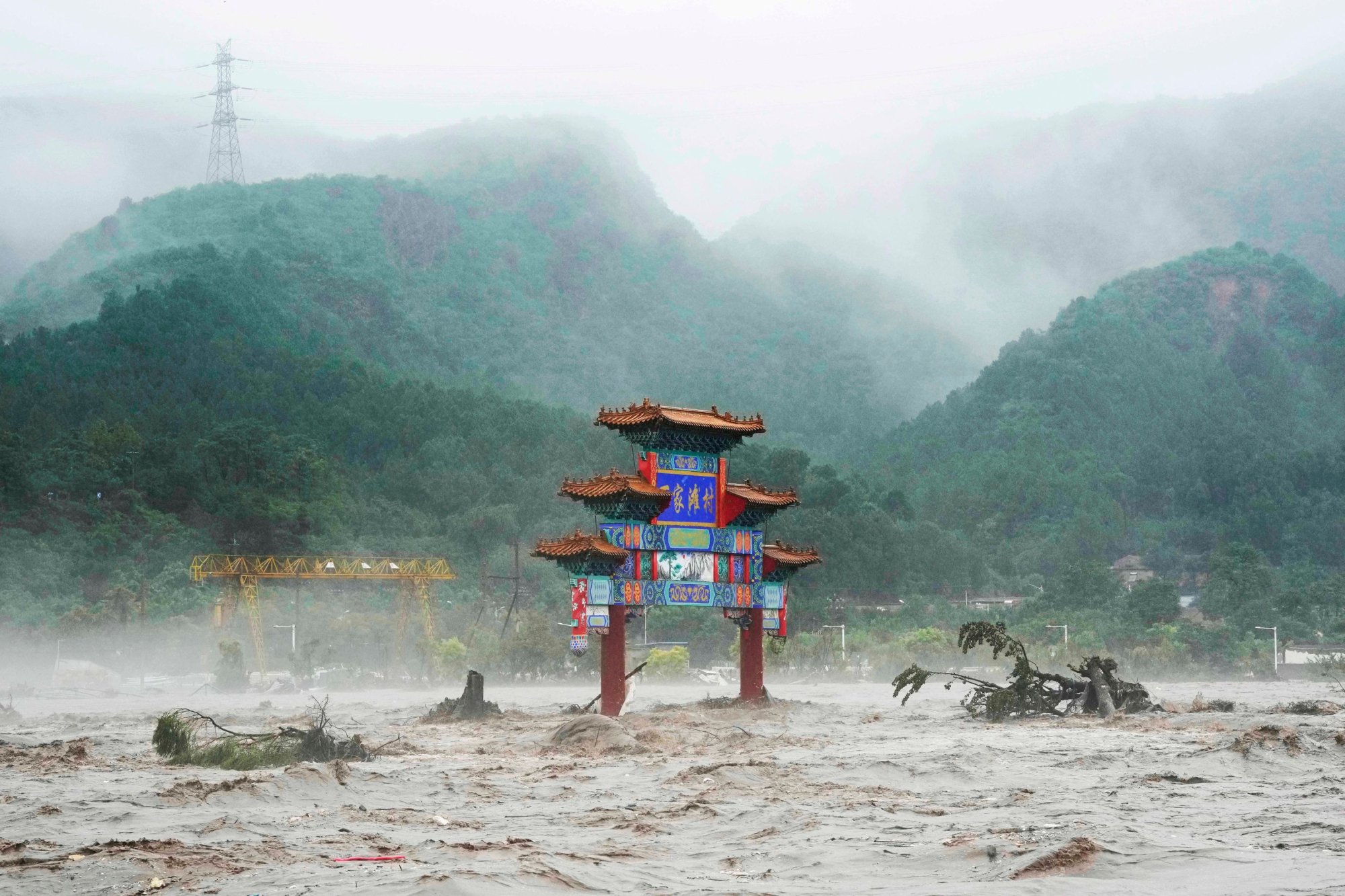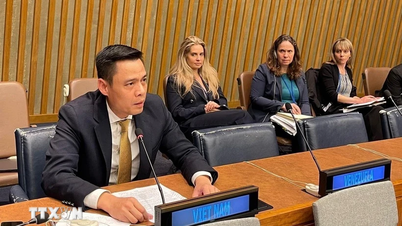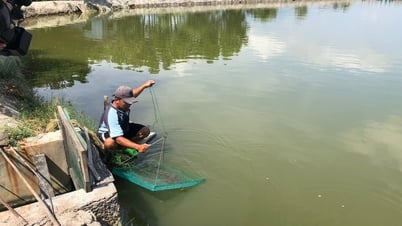A new report from the United Nations University (UNU) in Germany has outlined a series of approaching risk tipping points, and said that having a long-term view of these shows that humanity can still act to prevent them.

Humanity needs to preserve this green planet for future generations. Photo: BSS
Risk tipping goes hand in hand with climate tipping
Tipping points are triggered by small increases in momentum that quickly lead to major impacts. And risk tipping points are different from the climate tipping points the world is already on the brink of: the collapse of the Amazon rainforest and the transformation of a key Atlantic gyre, for example.
“Climate tipping points” are large-scale changes caused by human-induced global warming, while “risk tipping points” are more directly related to human life through complex ecological and social systems.
The UNU analysis also warns of further tipping points, such as the depletion of groundwater, which is vital to ensuring food supplies. These “tipping points of risk” include the loss of mountain glaciers – a source of water in many parts of the world – or the accumulation of space debris that could damage satellites, especially weather satellites.
“As we exploit water resources, destroy nature and pollute both Earth and space, we are moving closer to multiple tipping points that could destroy the very systems on which our lives depend,” said Dr Zita Sebesvari from UNU’s Institute for Environment and Human Security.
“We are changing the entire risk landscape and losing risk management tools,” Dr. Zita Sebesvari emphasized.
The biggest risk points
The report looks at six examples of risk tipping points, including the point where building insurance is no longer available or affordable for structures in flood-prone areas. This leaves people without an economic safety net when disasters strike, adding to their hardship, especially for the poor and vulnerable.
The climate crisis is increasing the frequency and severity of extreme weather, with one major insurer, for example, stopping property insurance in California due to “rapidly increasing impacts of disasters,” particularly wildfires.
Insurance premiums have also skyrocketed in Florida, where six insurers have gone bust due to climate-related floods and storms. The report also said that an estimated half a million homes in Australia will be uninsurable by 2030, largely due to the increased risk of flooding.
Another risk tipping point considered in the report is when underground aquifers are over-exploited to the point where wells run dry. The report said aquifers, which currently prevent half of the loss of food production caused by drought, are expected to become depleted more frequently due to global warming.

The risks posed to humans by natural disasters, such as storms and floods, are reaching a tipping point, making prevention sometimes impossible. Photo: NBC
The report says more than half of the world’s major aquifers are being depleted faster than they can be naturally replenished. If they were to suddenly run dry, the entire food production system would be at risk of failure.
The tipping point for groundwater risk has been passed in some countries, such as Saudi Arabia, and is approaching in India. Saudi Arabia was a major wheat exporter in the 1990s but now has to import grain after its groundwater wells dried up.
Other risk tipping points mentioned by the report include when water supplies from mountain glaciers begin to decline; when Earth’s orbit becomes so filled with debris that a satellite collision would trigger a chain reaction; when heat waves surpass the threshold at which natural sweating can cool the human body; and when the loss of interdependent wildlife leads to the collapse of an ecosystem.
Change to be a “good ancestor”
“You may not know [the tipping point] now, but very soon you will,” said Dr Caitlyn Eberle of UNU. “In five years, 10 years, 20 years, the risks will be there. We can still avoid these impacts, because it is really within our power to change.”
Meanwhile, Dr Zita Sebesvari said: “Truly transformative change involves everyone. For example, in the case of home insurance, homeowners can increase their resilience to flooding, cities can improve planning, governments can provide state-backed insurance, and global action from countries and companies can cut carbon emissions.”
Values also need to change, says Sebesvari: “One of our examples is ‘being a good ancestor’, which sounds fancy but we think the rights of future generations need to be built very specifically into our decision-making today.”
Professor Tim Lenton, at the University of Exeter, UK, commented that the report by German experts is a very important and practical warning to humanity in the context of climate change continuously creating new, more severe extreme weather patterns.
“These authors are using a different definition of a tipping point,” said Professor Tim Lenton. “Much of what they are describing is a threshold response, which certainly poses serious health and even life-threatening risks – particularly when humans are exposed to extreme heat and humidity, as we saw in the tragic heatwave in Asia earlier this year.”
Nguyen Khanh
Source


![[Photo] Prime Minister Pham Minh Chinh starts construction of vital highway through Thai Binh and Nam Dinh](https://vphoto.vietnam.vn/thumb/1200x675/vietnam/resource/IMAGE/2025/5/12/52d98584ccea4c8dbf7c7f7484433af5)
![[Photo] Prime Minister Pham Minh Chinh receives Swedish Minister of International Development Cooperation and Foreign Trade](https://vphoto.vietnam.vn/thumb/1200x675/vietnam/resource/IMAGE/2025/5/12/ae50d0bb57584fd1bbe1cd77d9ad6d97)

![[Photo] Prime Minister Pham Minh Chinh works with the Standing Committee of Thai Binh Provincial Party Committee](https://vphoto.vietnam.vn/thumb/1200x675/vietnam/resource/IMAGE/2025/5/12/f514ab990c544e05a446f77bba59c7d1)






























































































Comment (0)